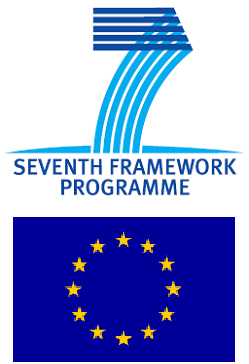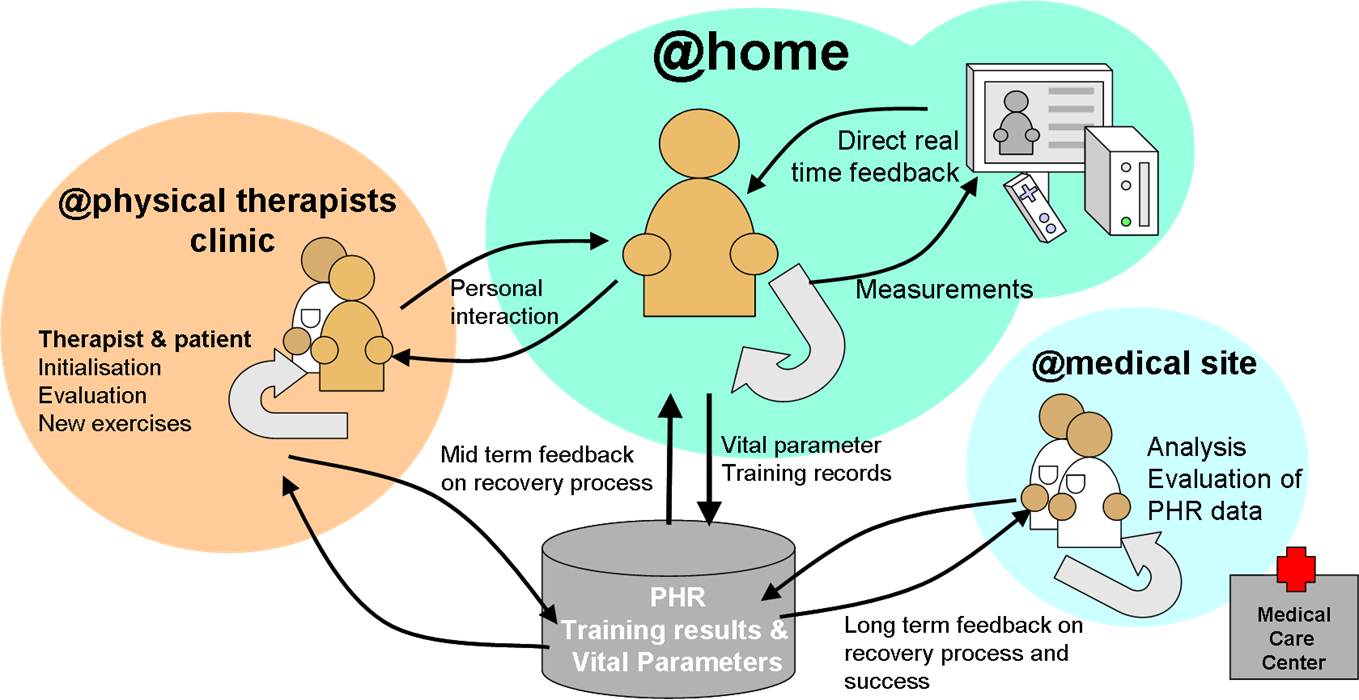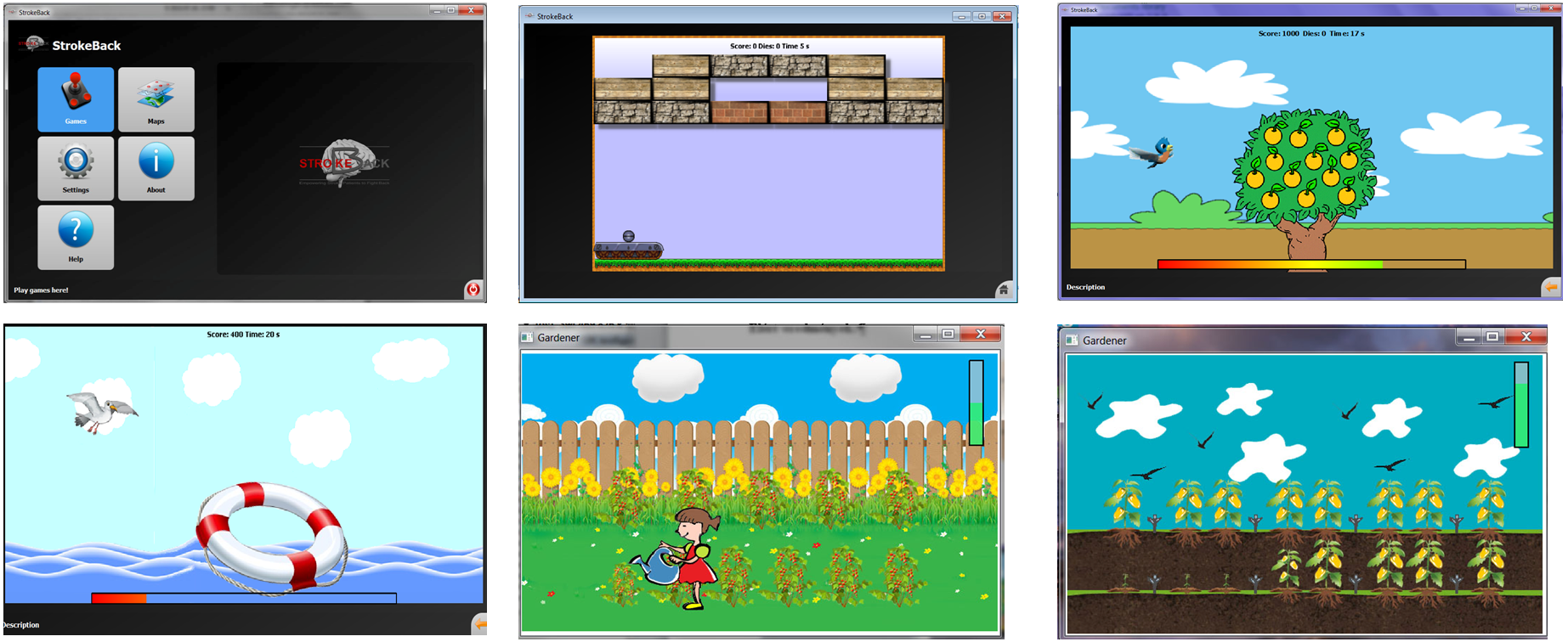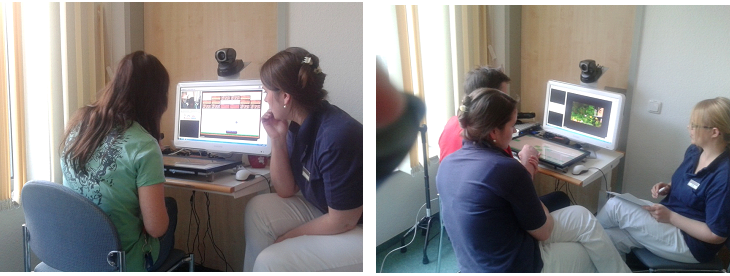Duration: 01.10.2011 - 30.09.2014
Web Page: http://www.strokeback.eu
Contact Person: Cecília Sík Lányi, PhD, Associate Professor
Partners of the Consortium
- IHP GmbH - Innovations for High Performance Microelectronics, Germany

- Brandenburgklinik Berlin-Brandenburg GmbH\&Co KG, Germany
- INTRACOM SA TELECOM SOLUTIONS, Greece
- MEYTEC GmbH Informationssysteme, Germany
- University of Pannonia, Hungary
- Research for Science, Art and Technology LTD, Great Britain
- University of Southampton, Great Britain
- University of Potsdam, Germany
Aim of the Project
Development of a Telemedicine-system for tele-monitoring which helps the home rehabilitation of stroke patients. The designed StrokeBack system helps the quick recovery of patients, because the tele-monitoring system can continuously follow the effects of exercises in "normal" situations. The medical staff can get a fast feedback on the effects of the rehabilitation process. According to the data, the system enables a faster feedback, thus reducing the healthcare costs during which it also improves the quality of life of the patients.

The StrokeBack rehabilitation cycle is based on a patient-centred approach. The exercises are done in a home environment and the system records progress. The rehabilitation plan and the results of the exercises are checked by an ambulant physical therapist. All of the data are stored in the Patient Healthcare Records (PHR) thus long-time feedback can be gained during the rehabilitation process.
Our Task in the Project
Design, implementation and testing of VR based rehabilitation games for the StrokeBack system, which are primarily controlled by a Microsoft Kinect sensor, but can also be controlled by traditional input devices and smartphones. A single unit serves for the movement validation in the system, the results of which are processed according to the parameters of developer games. To enable customization of the therapeutic process, to fit the patients' state, the games' framework should provide parameter and level editor opportunities for the medical staff.

Pictures from the games
Results
- According to therapists' requirements programs of 6 games have been created, of which the Break the Bricks, Birdie and the Gardener games got included in the StrokeBack framework.
- First clinical testing; according to the tests accomplishment of different levels of difficulties and alternate locations.
- Accomplishment of communication between games' database and StrokeBack framework.
- In the topic 8 publications, 3 thesis work and 3 studies for Scientific Students' Association have been written.

Pictures of the clinical testing



